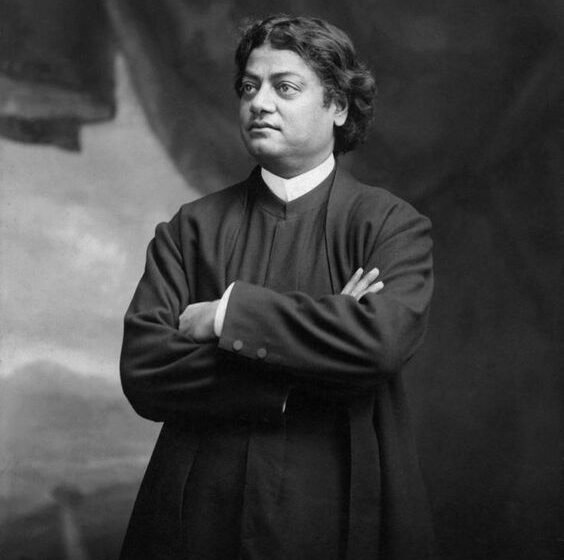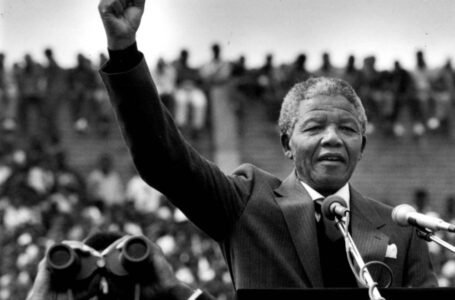Swami Vivekananda: The Spiritual Luminary and Social Reformer

Swami Vivekananda, a name synonymous with spiritual enlightenment and social reform, left an indelible mark on the world with his profound teachings and visionary outlook. His life’s work continues to inspire millions across the globe. Born on January 12, 1863, in Kolkata, India, as Narendranath Datta, he was inclined towards spirituality from a young age. His meeting with Sri Ramakrishna ignited his spiritual journey, leading him to embrace monastic life. Vivekananda’s speech at the Parliament of the World’s Religions in Chicago in 1893 brought him international acclaim. He established the Ramakrishna Mission, which played a pivotal role in social reform and education.

Swami Vivekananda’s legacy is multifaceted—spanning religious harmony, education for all, and national integration. His teachings continue to guide individuals and institutions alike towards a path of service and spirituality. Swami Vivekananda, then known as Narendranath Datta, left his home in 1886 following the death of his guru, Ramakrishna Paramahamsa. He embarked on a journey across India as a wandering monk, with no possessions and reliant on the charity of others. This period was crucial for his spiritual development and his understanding of the diverse social conditions in India. He witnessed firsthand the poverty and suffering of the masses, which deepened his resolve to uplift society through spiritual and social reform. His travels also allowed him to meet various scholars and leaders, further shaping his vision for India’s future.
His mentor introduced him to the path of self-realisation and service to humanity he travels across India, exposing him to the country’s social realities, igniting his desire for reform, His speeches in Chicago brought him international recognition and a platform for his message. This allowed him to institutionalise his vision of service and spirituality.

Swami Vivekananda’s speech at the Parliament of the World’s Religions in Chicago in 1893 is one of his most celebrated contributions. He began his address with the words “Sisters and Brothers of America,” which resonated deeply with the audience, leading to a standing ovation. In his speech, he introduced Hinduism as a tolerant and inclusive religion, emphasising its ancient roots and philosophical richness. He quoted scriptures like the Bhagavad Gita and Upanishads, highlighting the concept of universal brotherhood and the unity of all existence. His message of religious tolerance and the importance of interfaith dialogue was a cornerstone in the history of modern spirituality and played a significant role in bridging Eastern and Western ideologies.
In his series of speeches at the Parliament of the World’s Religions, Swami Vivekananda covered various topics, including:
Religious Acceptance: He spoke about the need for universal acceptance and not just tolerance of all religions, stating that all paths lead to the same divine goal.
Spiritual Democracy: Vivekananda introduced the idea of spiritual democracy, where all individuals have the right to choose their spiritual path.
Condemnation of Fanaticism: He condemned all forms of fanaticism and hatred in the name of religion, calling for peace and harmony.
Science and Religion: Vivekananda discussed the relationship between science and religion, advocating for a rational approach to spirituality.
Women’s Role in Religion: He addressed the role of women in religion, emphasising their equal importance in spiritual progress.

His representation of India on a global platform instilled a sense of pride among Indians during the colonial period The speech sparked a spiritual renaissance in India, inspiring many to explore and embrace their cultural heritage. Vivekananda’s call for social justice influenced leaders and reformers to address issues like caste discrimination and women’s rights. His message motivated the youth to contribute to nation-building and to strive for personal and collective excellence.
It sparked a renewed interest in Indian spirituality and philosophy, contributing to the rise of national consciousness and social reform and introduced Eastern spirituality to a broader audience, influencing thinkers and leading to the establishment of Vedanta societies.
He advocated for education that combined Western knowledge with Indian spirituality, emphasising character building, His efforts promoted interfaith understanding and harmony within India’s diverse religious landscape Through the Ramakrishna Mission, he initiated various philanthropic activities like healthcare, education, and relief work. Vivekananda played a key role in reviving interest in Indian scriptures and philosophies, countering the colonial narrative of cultural inferiority.
Also He promoted an education system that integrated practical skills with moral values and played a pivotal role in reviving pride in Indian heritage and philosophy and inspired the youth to take an active role in nation-building and personal development, His teachings fostered respect and understanding among different religious communities.

Yes, Swami Vivekananda faced several challenges during his mission:
Scepticism: He encountered scepticism from both conservative elements within Indian society and Western audiences unfamiliar with Eastern philosophies.
Financial Constraints: Funding his travels and the establishment of the Ramakrishna Mission was a constant struggle.
Health Issues: His intense work schedule and travels took a toll on his health, leading to a premature death at the age of 39.
Colonial Resistance: The colonial authorities were wary of his influence and the potential for social upheaval.
His powerful speeches won over critics and garnered support and adapted his teachings to different audiences, making them relevant and accessible, determination and spiritual conviction helped him persevere despite health and financial issues and also built a network of followers and patrons in India and abroad who supported his mission. The death of his guru, Ramakrishna Paramahamsa, was a profound loss that deeply affected him. His extensive travels and relentless work pace led to deteriorating health, culminating in his early death. He sometimes experienced spiritual doubts and the burden of ensuring his mission’s success also intensified his meditation and spiritual disciplines. dedicated himself to sharing Ramakrishna’s teachings, which gave him purpose and found support and solace in the monastic brotherhood he formed, later known as the Ramakrishna Order.

Swami Vivekananda’s dynamic personality and conviction attracted many followers. His teachings emphasised the importance of service to humanity, resonating with people’s desire for change encouraged practical solutions to social issues, making reforms seem achievable His own commitment to social causes set an example for others to follow. He criticised the caste system and advocated for the upliftment of the oppressed classes, He supported women’s education and their role in society, calling it essential for national progress and emphasised ‘Daridra Narayana’ (serving the poor as a form of worship), inspiring many to engage in social service and His teachings promoted unity and solidarity among Indians of different backgrounds.
From Swami Vivekananda’s life, we can learn:
His unwavering belief in his mission shows the strength of a clear purpose. His teachings also remind us to embrace diversity and find unity in differences, life exemplifies the impact of serving others without expecting anything in return. He demonstrated the immense potential of the youth to drive positive change.

And yes, Swami Vivekananda did face opposition from some religious leaders who were resistant to change and felt threatened by his progressive ideas. His calls for social reform, especially regarding caste and the status of women, challenged traditional norms and practices. However, his deep understanding of Hindu scriptures and his ability to articulate the essence of spirituality won over many sceptics and gradually helped to shift perspectives on religious practices and social issues.
Swami Vivekananda’s visionary leadership and compassionate teachings ignited a wave of social reform that continues to resonate in the fabric of Indian society, inspiring generations to strive for a more equitable and enlightened future.


